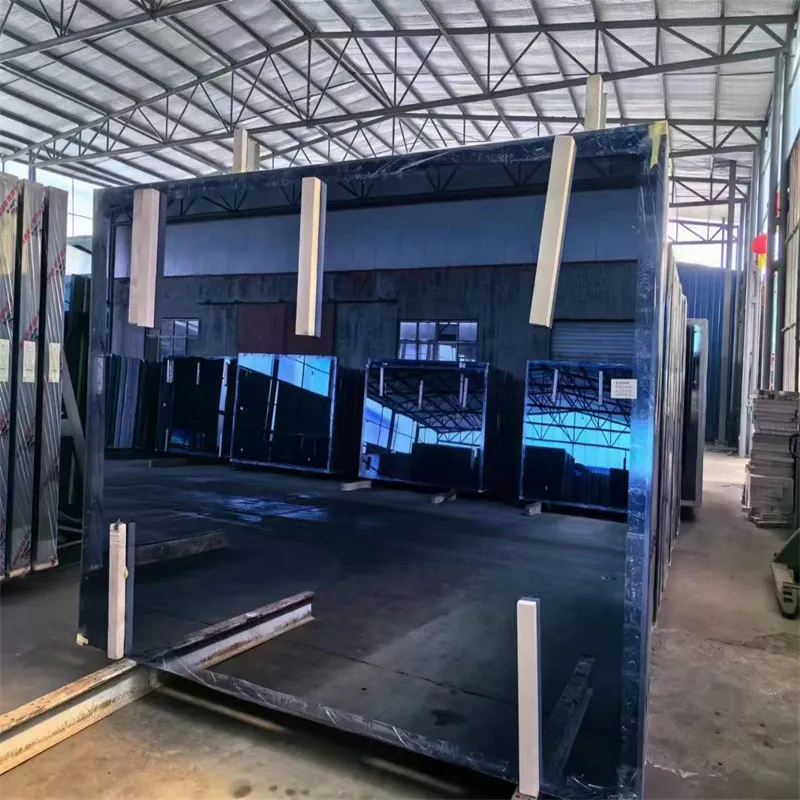Dec . 26, 2024 21:10 Back to list
tin bath float glass
The Tin Bath Process in Float Glass Manufacturing
Float glass is one of the most widely used materials in construction, automotive, and various other industries. Its smooth and clear surface makes it ideal for windows and other applications where transparency and aesthetics matter. The production of float glass involves a fascinating method known as the tin bath process. This innovative technique was introduced in the mid-20th century and has since revolutionized the glass manufacturing industry.
The float glass process begins with the melting of raw materials, primarily silica sand, soda ash, and limestone, in a furnace at temperatures exceeding 1,600 degrees Celsius. Once the raw materials have melted into a molten glass, they are drawn into a float bath—a large, shallow pool of molten tin. The unique aspect of this method lies in the use of tin, which is denser than glass. As a result, the molten glass floats on top of the tin, allowing for the production of glass sheets with uniform thickness and flawless surfaces.
One of the paramount advantages of the tin bath process is the ability to create a perfectly flat glass surface. The molten glass naturally levels out on the surface of the tin, eliminating imperfections that might occur in other glass-making processes. This inherent characteristic is vital for applications requiring high optical clarity, such as in the production of windows, mirrors, and screens. Glass produced through the float process is often referred to as float glass, and it is known for its exceptional transparency and smoothness.
Another crucial aspect of the tin bath process is the precise control of thickness. When the glass leaves the tin bath, it can be modified to achieve different thicknesses based on specific requirements. By adjusting the speed of the glass ribbon as it exits the float bath and cools on a conveyor system, manufacturers can create glass sheets ranging from just a few millimeters to several centimeters thick. This versatility caters to diverse applications, from simple picture frames to robust architectural structures.
tin bath float glass

The cooling process is equally important in the float glass manufacturing. After the glass floats on the tin bath, it undergoes gradual cooling in a controlled environment, known as the annealing lehr. This step is essential for relieving internal stresses within the glass, ensuring durability and stability. Proper annealing contributes to the glass's resistance to temperature changes and physical shocks, making it suitable for a wide range of applications.
Environmental considerations also play a significant role in the float glass production process. Modern float glass plants are designed to minimize their carbon footprint. Advances in technology have led to the development of energy-efficient furnaces and processes that reduce emissions. Additionally, the recycling of glass is an integral part of the industry, allowing for the reuse of materials and minimizing waste. Many manufacturers actively incorporate recycled glass into their production, further underscoring their commitment to sustainability.
The versatility of float glass is evidenced by its numerous applications, extending beyond mere transparency. It can be tempered or laminated for added strength and safety, making it ideal for architectural glass structures, façade designs, and automotive glass. Moreover, advancements in coatings and treatments enable the production of low-emissivity glass, which enhances energy efficiency by reflecting heat while allowing visible light to pass through.
In conclusion, the tin bath float glass process is a pivotal development in the glass manufacturing industry. Its ability to produce superior quality, flat glass combined with efficient production methods and sustainability practices make it a critical choice for various applications. As industries continue to demand high-quality transparent materials, the tin bath process will undoubtedly remain at the forefront of glass production technology, ensuring that float glass remains an essential material for years to come.
-
Safety and Style with Premium Laminated Glass Solutions
NewsJun.24,2025
-
Reinvents Security with Premium Wired Glass
NewsJun.24,2025
-
Premium Float Glass Line for Modern Architecture
NewsJun.24,2025
-
Low Emissivity Glass for Energy-Efficient Architecture
NewsJun.24,2025
-
High-Performance Insulated Glass Solutions for Modern Architecture
NewsJun.24,2025
-
Elevates Interior Style with Premium Silver Mirror
NewsJun.24,2025
Related PRODUCTS














